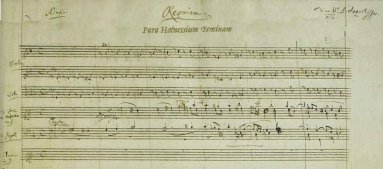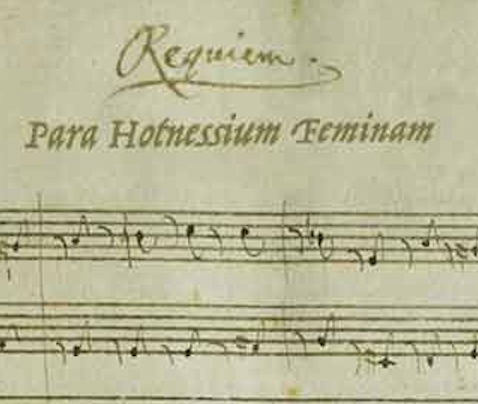When I got an email with the subject line “Requiem for My Potential Hotness,” I was intrigued—and was hooked when its writer, Rachel McCarthy James, went on to detail how the false split between intelligence and beauty had led to another false split, this one of her own identity. I'm thrilled to host the results of that exchange here. McCarthy James has written for Broadly, Bitch Media, Lit Hub, and The Billfold, among others. You can follow her on Twitter @rmccarthyjames.

Since I saw Ariel and her purple bikini in The Little Mermaid at age three, I wanted to be hot. My parents were more interested in the development of my intellect than my looks, but I still nursed the secret desire to be desired, to be the thing that boys started calling Hot, sometime around the third grade. So I began to believe that Smart was on one end, mutually exclusive with Sexy, and I knew that I should choose Smart. I was scared of the baggage of beauty—the new things people would want from me, say to me, assume about me, the specter of Sex that I could not back away from. My body grew out of control, too big, much too big. And I was scared that I wouldn’t live up, that I would try and fail to be sexy. I wasn’t going to be Britney Spears, that much was clear, so best not to try at all. Safer. So I didn’t learn to do makeup. I didn’t wear my retainer. I wore clothes that looked like what my crush wore, instead of what my crush’s girlfriend wore. I compulsively plucked my eyebrows until they were gone.
But like the slim person who looks back at old photos and thinks, I can’t believe I thought I was fat, I can’t believe I thought I was ugly. I had assumed failure on the scale of Hotness and I wasted so much potential. I assumed hotness was permanently out of my reach, when I could have had all the boyfriends. I have come to understand some things about myself, and one of them is that I am cute with my big frame, like a fuckable Snorlax. One of my friends said, “no one would look at that face and tell you that you’re ugly.”
I’m 30 this month and fat for the last seven years, so probably permanently. I have finally realized that even if I lose 80 pounds (which I won’t), I will never be hot in the way I could have been, in the way I dreamed of when I was a child fantasizing about my adult life. And I’m kind of mad that I was never hot: mad at myself, mad at beauty, and—just a little, in the worst chambers of neurons—mad at women who are hot. I am jealous that other women get to be hot, regardless of age—from Kylie Jenner on up to Jane Fonda, they have beaten me, they have arrived ahead of me, and the part of me that is jealous and nasty and competitive and shallow wants to win, dammit, wants to be the best. But I know it’s wrong. I know it’s wrong not just because misogyny is a false game in which there are no winners, really, but also because they win not because I’m uglier, but because they legitimately work a lot harder than me at being hot, at dieting, at exercise, at makeup, at hair, at clothes. I can’t begrudge someone success based on hard work.
It’s more that I am mad at myself that I didn’t try harder to be conventionally hot when I would have been so. Because of a lot of unfair things—race, class, height, health, shiny hair—my body had many qualities that could have aligned with a certain form of hotness, if I’d pushed the levers a bit more. For a total of maybe 100 non-consecutive hours when I was 20 to 23, I was made up and dressed scantily enough that I probably cleared the bar of Hot. I have pictures. But I found more and more that the effort wasn’t worth the reward, that even at my hottest I would glance across the room and wonder, Is she hotter? I still didn’t win. Also I was drunk most the time. Even though hotness was accessible to me, I found it less than satisfying.
Now, even if I were to weigh less, I will never be able to go back and achieve the Peak Hotness I could have had. I always want to know the truth, and I will never know the truth. Is it that much better to be nigh-objectively attractive? Does everyone treat you better? Do the potential cons—being harassed more, pestered, devalued, assumed to be less smart—outweigh the pros? Would I have been happier? Would I be sadder in the future, to no longer be hot, or is it better to have been hot and lost it than to never have been hot at all? Would I have finally felt like I won? There is surely a difference between being a beautiful person and being a moderately pleasant-looking person. Both get you a certain set of advantages. Are the advantages of being actually hot worth it? I’ll never know.
When I was a little kid, people kept telling me I was going to be a model, because I was tall. When I was a little kid, I kept telling people that I wanted to be the first female Chief Justice of the Supreme Court, because I was smart. I can’t go back to 18, and try harder at hotness or college, and the twelve years that have passed since have knocked me out. Like being an Olympic athlete, being Hot and being a Supreme Court Justice is a road that forks off before the age of 20. Neither of those dreams will be; I am not, by either measure, good enough on those scales.
Of course, hotness is still possible, on any scale, after 30, after 40, after whatever. Helen Mirren is a concept that exists. Iman is at present more beautiful than me on my wedding day in any timeline in the multiverse, even the ones where I put in a bunch of effort. And as my editor commented on an early draft: “Most women I know my age—around 40—report their early 30s as being their own Peak Hotness.” If I really wanted to, I could probably become a hottie still, even without losing a bunch of weight. Ashley Graham isn’t much younger or thinner than I am. But it would take a lot more time, money, and effort than if I’d began taking beauty seriously at 12, or 15, or 22. Instead, I’m spending that free time learning French and hoping I pick up some elegance by osmosis. It’s not that being 30 disqualifies me from intense beauty; it’s just that I’m just unlikely to find the motivation to turn this particular car around. I want to get pregnant soon; my figure and my priorities will reshuffle again. I don’t expect being fuckable to suddenly jump several notches in my bucket list, and why would I want it to? It’s a bother, unnecessary because: I like who I am and I like how I look, even—maybe because—my own brand of magnetism doesn’t really register on the scales of the people who define hotness.
But I’m still good enough. I went to a women’s college; I made friends; I found an intellectual voice; I found a lover. None of them required me to be Hot, and eventually it slipped out of my plans and dreams. Hotness is always a short-term goal, and I was more interested in parties, friends, food, writing. At Hollins, I saw that there were many kinds of beauty, and that the girl with the pearls and the perfect face in size 2 jeans wasn’t necessarily more pleasing to look at than the chubby girl with an endlessly fascinating MAC kit with more brilliant shiny tubs of eyeshadow than there are crayons in a box and a way of telling vivid color stories with cardigans, scarves, and accessories. I also learned that people thought I was cool and interesting and smart even when I didn’t shower for six days in a row and wore the same hoodie, pajama pants, and Crocs to class every day for a semester. Suddenly having friends who admired me regardless of my appearance changed my relationship to my appearance for good, and for better. Instead of being just another Rachel who didn’t look like Jennifer Aniston, I leaned into my simple nickname: RMJ. My own invention, undefined by beauty, stipulated by me.
I did not spend my twenties being as breathtakingly beautiful as I perhaps could have, but I also spent them having fun and sex and happiness. If I had spent them being Hot, would I be able to look at myself in the mirror and smile at my wrinkles, or would they only remind me of the decay still to come? I don’t know. I’ll never know that particular truth.
